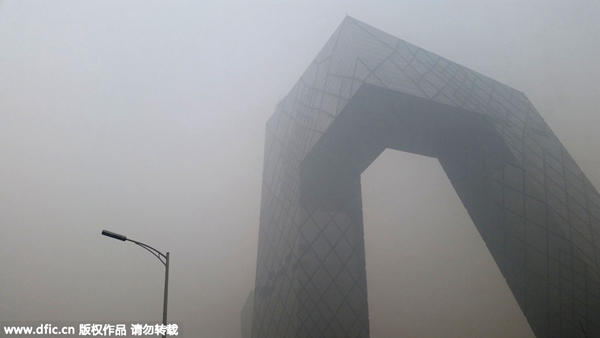 |
|
The China Central Television (CCTV) headquarters is obscured by severe smog in Beijing on Tuesday. [Photo/IC] |
The national environmental watchdog has declared that boosting efforts to cut air pollution in northern China, especially winter smog from the burning of coal, is a mission for this year.
Among the efforts, Beijing has declared that it will wipe out coal use in its most rural areas by 2020.
As much as "60 percent of smog content is caused by coal burning in the starting phase of each smog", said Fang Li, an official with Beijing's Environmental Protection Bureau.
To start with, Beijing will replace coal-fired heating stoves with those powered by electricity or gas in 400 villages this year, before taking the campaign to the districts of Chaoyang, Haidian, Fengtai and Shijingshan by 2017, said Guo Zihua, a municipal rural development official.
Beijing's downtown districts of Dongcheng and Xicheng eliminated coal burning last year, officials said.
The capital and other places in northern China experienced several smog alerts in November and December, when peak readings were many times higher than the national safety level.
Burning coal for winter heating has been listed as one of the primary causes of air pollution, Chen Jining, minister of environmental protection, said on Monday at the annual meeting on environmental protection in Beijing.
The increased severity since November of hazardous smog in northern China showed that the government efforts in reducing the coal comsumption for improving air quality, Chen said.
He said the ministry will do everything to prevent environmental protection from becoming a stumbling block for the country during the 13th Five-Year Plan period (2016-20).
Chen said that the trend of transferring pollution from the country's industrial eastern region to the developing central and western regions warrants particular attention.
